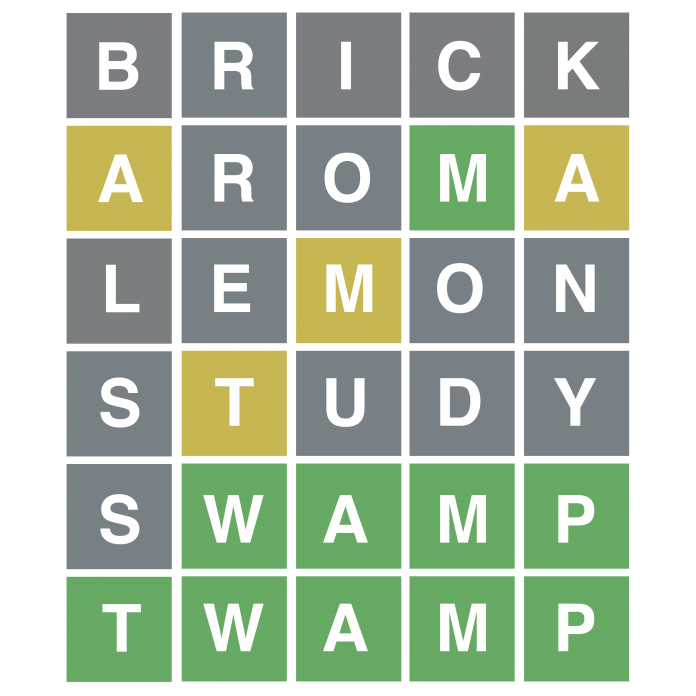Lauren Meyer ’24 is planning to major in anthropology and minor in history. Outside of the Flat Hat, Lauren is a member of Swim Club and is also an avid Swiftie. Email Lauren at lemeyer@wm.edu.
The views expressed in the article are the author’s own.
On a cold January evening, one of my friends said something that would change the course of my daily routine for the foreseeable future.
“Yes! I got the Wordle in three,” he cried. Perplexed, I looked over. He seemed to be celebrating something on his phone, having to do with a game called “Wordle.” This having no meaning to me, I quickly zoned out as he explained the rules to the game. I do not care, I thought. This game seems hard and confusing. I promptly forgot all about Wordle and lived my life in peace for approximately one week.
Then, the inevitable hit. I saw Wordle trending on Twitter, and, remembering my friend’s obsession, I decided to give it a try. I don’t remember the first word. I don’t remember how many tries it took me to guess. All I remember is the rush of excitement and adrenaline that shot through me that first day when, one by one, five letters turned green.
Thirty-seven days later and my Wordle streak is still going strong. Would I call myself particularly talented? No. Am I proud to have kept my streak alive? Yes. Would I be devastated to lose it? Also yes. Am I fully expecting to lose it in the coming days? Unfortunately, yes.
The sanctity of Wordle has been betrayed. What began as a way to casually start the day has turned sour and frustrating. I used to wake up and happily do my Wordle, perhaps while sipping tea and listening to birds chirp outside my window. Now, I have a violent and bloody battle against the English language every morning at 9 a.m. as I painstakingly try to think of a word whose only vowel is “i.”
The problem here is that when The New York Times acquired Wordle, they attempted to intellectualize it. They have definitely made the words harder since assuming control over the game. But I argue, New York Times, that this is not the daily crossword. Wordle is not supposed to be mentally taxing. At its origin, it was a light game created and meant for good, free fun. Yes, it’s a challenge, but it’s one that people play because they want to win. People want to start their day on a positive note and Wordle provided that opportunity. Now, people are losing in droves, their streaks going down with them.
I don’t think any of this would necessarily be a problem if Wordle hadn’t started out the way it did. It was an almost universally liked game due to the relative ease and accessibility of playing. Also, what’s not to like about the story of the game’s creation: A husband made it for his wife, spread it to his friends and then decided to share it with the world. A sweet story for a sweet game until capitalism came knocking and ruined it, turning it highbrow and strenuous.
Now, I’m not blaming the game’s creator for selling Wordle; he reportedly made seven figures off the deal. I would have probably done the same thing. However, in buying the game, The New York Times’ aim is to profit, as the game will probably move to a subscription later on. It’s a smart business move, allowing people to get used to the game, and then more people will be willing to continue paying for it. Except the Times is already alienating their fanbase by crushing people’s win streaks and making the words incredibly difficult.
And so, I will continue to play Wordle every morning, trying my best to keep my streak alive. If it dies, I might even keep going. But if Wordle is made pay-only, I do not foresee myself continuing to play the game.

